

Laura Kuenssberg
Presenter, Sunday with Laura Kuenssberg•@bbclaurak

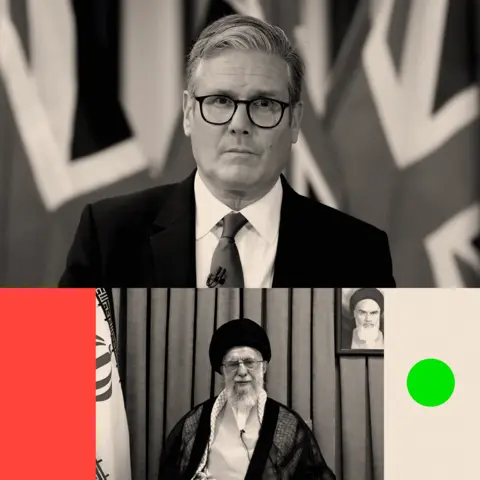 BBC
BBC
"If this is true, all our troubles are over."
A British businessman fast running out of cash, William Knox D'Arcy, is said to have uttered those words when he received a telegram from Persia, 113 years ago.
Oil had been discovered, after years of failed explorations under Knox D'Arcy, who had been granted the rights to hunt for the black stuff at the turn of the century.
For him, striking oil was to provide a second fortune after he'd made millions from Australian gold.
For the UK, Persia - later to become Iran - and for the rest of the world, it was the moment the Middle East's financial and political fortunes became linked to the West like never before.
Knox D'Arcy's cash problem might have been solved. But the troubles in the region were far from over.
This weekend, although ministers want to concentrate on their plans to make it easier to do business at home ahead of their industrial strategy being published next week, two big questions hang heavy.
What happens next in the hottest of conflicts in a vital region? And does the UK play a role?
Whether you like it or not, "it should matter, and it does matter" to the UK, according to one Whitehall source.
There is the fraught tangle of history. Not just the fortune from the first discovery of oil going into British coffers at the start of the last century.
But also the UK's involvement in overturning the government in 1922, invading with the Russians during World War Two, backing another coup in 1953, then along with America, propping up the Shah until his exit in 1979, after months of turbulence and increasing protest against his regime. You can watch amazing archive of his departure here.

 Reuters
Reuters
Missiles launched from Iran towards Israel are seen from Hebron, in the Israeli-occupied West Bank
"We were all over them" for decades, one former senior minister observes.
Fast forward to modern times and successive governments have been deeply concerned about Iran's ambitions to build a nuclear bomb.
There were efforts, particularly by the former Foreign Secretary Jack Straw, to do deals that put weapons beyond reach. But there is acute worry now about Iranian activities in the UK itself.
Yesterday, seven men were arrested on suspicion of grievous bodily harm after two people were assaulted outside the Iranian embassy. The Met Police have said they believe the altercation happened between protesters supporting and opposing the Iranian monarchy.
Last month three alleged Iranian spies were charged for planning to commit serious violence against UK based journalists.
And the director general of MI5 said the UK has responded to 20 Iran-backed plots since the start of 2022, presenting potentially lethal threats here at home.
A source involved with an Iranian opposition group warned the regime, "has a massive network in the UK promoting terrorism and extremism – we'd never let the Russians get away with this… It's happening on our streets".
What is the UK role?

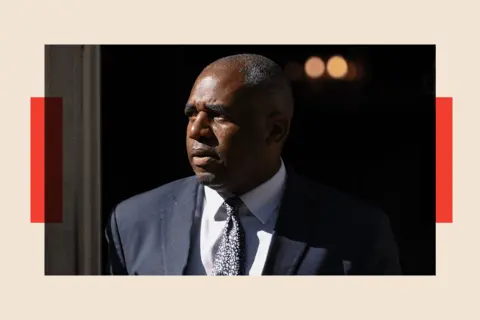 Reuters
Reuters
Foreign Secretary David Lammy said the UK is working with Israel to help people leave Tel Aviv airport
Ministers' public focus is on diplomacy for now. As ever, it was a suggestion from US President Donald Trump that sent Whitehall into a spin. This time, the notion that America might help Israel take out Iran's nuclear facilities.
The Foreign Secretary David Lammy jumped on to a plane to Washington. The government emergency committee, Cobra, convened. Everything went into overdrive before another update from team Trump.
Actually, he'd take a fortnight to think about it.
It left No 10 thinking, "everyone can take a breath – the two weeks and the volume of engagement means there is some tone of optimism – we're just focusing on trying to calm things", an insider said.
David Lammy spent more than an hour with Marco Rubio, the US Secretary of State, and Steve Witkoff, the president's envoy, leaving with the impression there was still a chance for diplomacy, although the threat of America joining the military action is real.
It's worth remembering there is deep disagreement in Trump's party about whether to assist Israel or not.
As the foreign secretary was seeking information from his American hosts, the president had been having lunch with Steve Bannon, one of the foremost Make America Great Again (Maga) backers, who has been very loudly pressing Trump not to get involved.

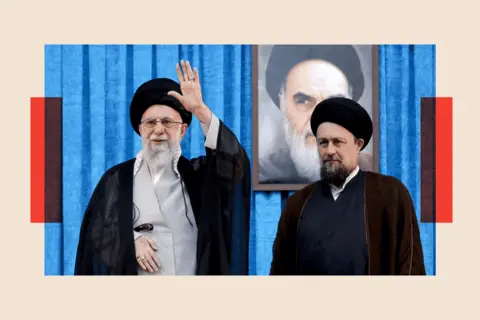 Reuters
Reuters
Ali Khamenei (pictured right) has been Iran's supreme leader for more than 30 years
Diplomacy then moved to Geneva, where Lammy and several European colleagues met the Iranian foreign minister. They repeated concerns about Iran's nuclear ambitions and it breaking the international rules.
The talks finished with no fixed decisions on next moves or negotiations, but a willingness to try. Ultimately, the UK and European push is to keep talking, trying to stop the war spreading more widely. But some sources question whether this makes any difference.
"Europe is pretty irrelevant in all this," one senior figure told me - and the American president even said it out loud.
"Iran doesn't want to speak to Europe. They want to speak to us. Europe is not going to be able to help in this one, " Trump said, dismissing the diplomatic discussions.
Other sources describe diplomacy as a "sticking plaster", questioning how effective it can be when Israel is so clearly intent on breaking the status quo, and changing the shape of the region, hoping for regime change in Iran and stopping them creating a nuclear bomb.
The former senior official told me, "Israel think this is a once in a lifetime, it's now or never… it doesn't represent a long term solution, but if you are in Tel Aviv the obvious riposte is, 'Yes, we'll still be alive'."
Another security source suggested the UK would not be relevant by taking a "preachy European position, like a teacher in a playground", but could instead pursue "alignment with the Americans for our own hard interests".
Aligning with America is so often a no-brainer for British prime ministers.
But a Labour prime minister aligning with Trump to bomb a country in the Middle East? That's something else.

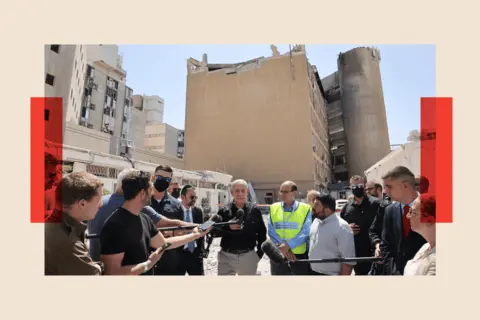 Reuters
Reuters
Israeli Prime Minister Benjamin Netanyahu visits Soroka hospital in Beersheba, after the town was hit by Iranian missile strikes
There is the practicality, "people in Whitehall will be very sceptical if thinking bombing Iran will yield any better outcome", one former diplomat said.
Another source suggests the UK simply hasn't done enough thinking in recent years about how to help Iran, a country of around 90 million people with serious political repression and economic hardship: "Britain doesn't have a strategy or a plan for Iran. It looks at Iran through the point of view of Israel or Gaza but doesn't look at it in its own right, so that's a problem."
If America were to get involved with British support in one way or another, what happens next?
The source said: "The Americans can go and attack Fordo (Iran's nuclear facility that's buried deeper than the Channel Tunnel), but if the Iranians lash out after, what then?"
Then, there is the legality. You don't need me to remind you that the prime minister used to be an eminent lawyer.
Whether the UK was asked to allow American jets to use the British base at Diego Garcia, or help with refuelling planes on their way to any Iranian target, the government would want to be confident there is a solid legal argument that justifies the attack.
There is already a political row over publishing the advice with an understanding the attorney general has expressed concern.
For the uninitiated, this is a very well-worn political track. Opposition parties say legal advice must be published in full. Governments say no. Lawyers and politicians, who are not giving the actual verdict, argue about it very publicly.

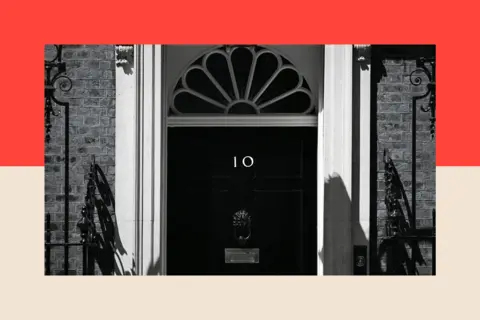 Reuters
Reuters
The UK and other G7 countries have called for an end to the fighting between Iran and Israel
In the end, international law is subject to all sorts of interpretation, what a former senior minister describes as "fungible" - in other words, it's far from fixed.
There is already what one source described as "loose blabber" about the legal advice this time.
Ultimately, the politics of the moment normally comes first, and the prime minister of the day must decide.
The political backdrop for No 10 is risky. Labour contends with the mythology around Tony Blair's decision to go into Iraq with George Bush, seen by many in the modern party as a disaster.
Any decision too to be seen to support Israeli military action stirs a long-standing streak of anti-Israeli feeling on the left.
Add that to profound concern about what is separately going on in Gaza right now, and it creates another flashpoint.
Pro–Palestinian candidates already swiped seats, and nearly took more from Labour in the general election.


Sign up for the Off Air with Laura K newsletter to get Laura Kuenssberg's expert insight and insider stories every week, emailed directly to you.


Highlighting the plight of Gazans is clearly not the same as objecting to Israeli or American action against Iran.
But issues can blur, and add to the volume of angry conversations inside the party about the Middle East.
The former senior minister, around during the Iraq conflict told me, "it would save us an awful lot of bother if you could get the Americans not to have our fingerprints on it".
But, if the White House asks, "I'd swallow hard and say, 'OK'".
Can you imagine Sir Keir Starmer saying no to Trump to help stop Iran creating a nuclear bomb? Can you imagine Sir Keir stepping into a Middle East conflict if it can be avoided?
The answer to both can't be the same. The White House has pressed pause while Trump mulls his options, but America joining Israel to destroy Iran's nuclear programme remains an option.
The UK has huge interests in the security of Iran and the wider Middle East – whether oil, trade, intelligence, or military bases.
Those questions for Sir Keir might be real before too long.
BBC InDepth is the home on the website and app for the best analysis, with fresh perspectives that challenge assumptions and deep reporting on the biggest issues of the day. And we showcase thought-provoking content from across BBC Sounds and iPlayer too. You can send us your feedback on the InDepth section by clicking on the button below.
.png)
 5 months ago
17
5 months ago
17








 English (US) ·
English (US) ·